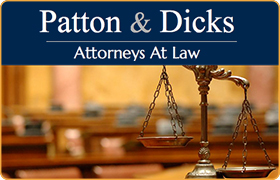Nalcrest Misdemeanor Lawyer, Florida
Sponsored Law Firm
-
 x
x

Click For More Info:
-
Patton & Dicks
465 East Main Street Bartow, FL 33830» view mapCriminal Defense, Criminal Appeals Real Attorneys Fighting For Real People
As Criminal and DUI Attorneys, we defend peoples rights in criminal courts. Find out how our services can help your situation.
863-225-3550
Not enough matches for Nalcrest Misdemeanor lawyer.
Below are all Nalcrest Criminal lawyers.
Elizabeth Phillips Whitehead
Family Law, International Other, Clean Air Practice, Criminal
Status: In Good Standing Licensed: 23 Years
Elizabeth Phillips Davis
Family Law, Divorce & Family Law, Criminal, Medical Malpractice
Status: In Good Standing Licensed: 22 Years
Shawn A. Jiles
Accident & Injury, Divorce & Family Law, Criminal, Estate
Status: In Good Standing Licensed: 21 Years
Michael Amico
Family Law, Child Custody, Divorce & Family Law, Criminal
Status: In Good Standing Licensed: 24 Years
Randall G Blankenship
Family Law, Divorce & Family Law, Criminal, Personal Injury
Status: In Good Standing Licensed: 45 Years

 About MeMore Info
About MeMore Info PracticesPatton & Dicks
PracticesPatton & Dicks
